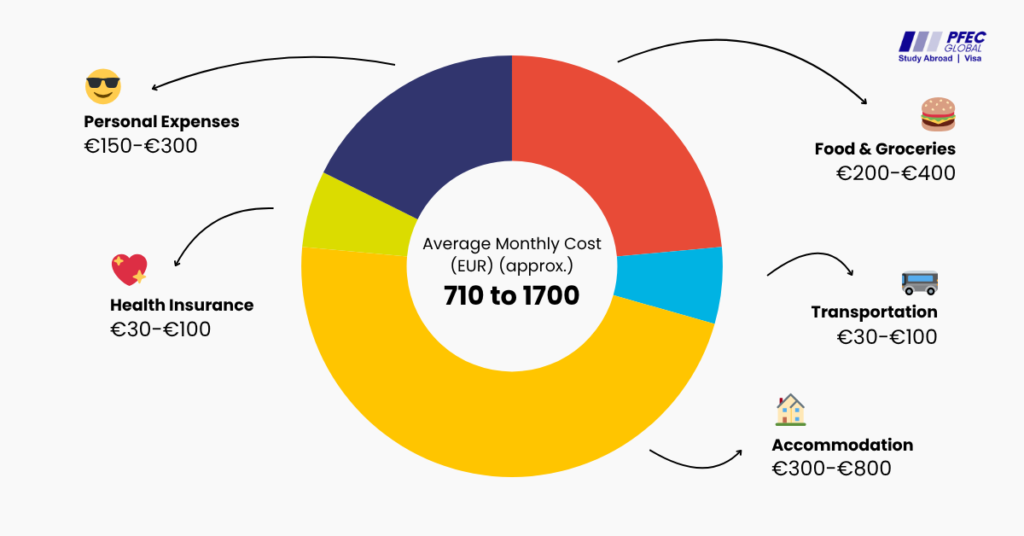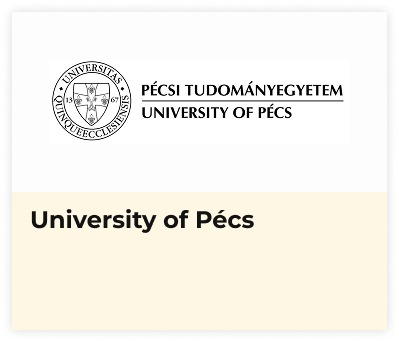Study in Europe

Study in Europe for Indian Students
Europe stands as the world’s premier destination for international education, offering world-class universities, diverse cultural experiences, and affordable education costs that attract over 1.8 million international students annually. For Indian students, studying in Europe represents an extraordinary opportunity to access globally recognized degrees, cutting-edge research facilities, and excellent post-study work opportunities across a continent rich in history, innovation, and academic excellence.
With 27 EU countries plus additional European nations offering diverse educational systems, Europe provides unmatched flexibility in program choices, language options, and cultural immersion. The continent hosts some of the world’s most prestigious institutions, with European universities consistently ranking among the top 100 globally in major international rankings. Whether you’re seeking affordable education in Germany, innovative programs in the Netherlands, or cutting-edge research opportunities in Switzerland, Europe offers pathways to transform your academic and professional future.

Why Study in Europe?
World-Class Educational Excellence
Europe is home to some of the world’s oldest and most prestigious universities, with institutions like Bologna (1088), Paris (1150), and Heidelberg (1386) setting global standards for centuries. ETH Zurich ranks #1 in continental Europe according to QS World University Rankings 2025, while European institutions consistently dominate international league tables across all disciplines.
Affordable Education Costs
The average tuition fee for all English-taught bachelor’s programs in Europe is just $7,390 per year for international students, making it significantly more affordable than studying in the USA or Australia. Many European countries offer free or low-cost education even for international students, with countries like Germany, Norway, and Finland providing tuition-free education at public universities.
Bologna Process and Credit Recognition
Europe’s unified Bologna Process ensures seamless credit transfer between European universities and global recognition of degrees. This system allows students to combine programs across different countries and guarantees that European qualifications are respected worldwide.
English-Taught Programs
Europe offers an extensive range of English-taught programs, with over 8,000 degree programs available in English across various disciplines. This eliminates language barriers while providing opportunities to learn additional European languages for enhanced career prospects.
Post-Study Work Opportunities
Most European countries provide excellent post-study work visas ranging from 1–2 years, allowing graduates to gain valuable work experience. The European job market values international graduates, with many multinational companies actively recruiting from European universities.
Cultural Diversity and Travel
Schengen Area benefits allow students to travel across 26 European countries without additional visas, providing unparalleled cultural exposure and networking opportunities. The diversity of languages, cultures, and traditions creates a truly global learning environment.
Research and Innovation Hub
Europe leads in research and development across multiple sectors, from renewable energy and biotechnology to artificial intelligence and space exploration. Students gain access to cutting-edge facilities and opportunities to work on projects that shape the future.
Top Reasons to Choose Europe Over Other Destinations
European education costs significantly less than US alternatives. While the average US public university charges $25,707 annually for in-state students and $43,421 for out-of-state students, European programs average just $7,390 per year with shorter degree durations (3 years vs 4 years for bachelor’s degrees).
Quality of Life RankingsEuropean countries consistently rank highest in global quality of life indices, with Switzerland, Denmark, and Netherlands leading worldwide rankings. This translates to safer environments, better infrastructure, and higher living standards for international students.
Language Learning OpportunitiesStudying in Europe provides natural multilingual development, with opportunities to learn German, French, Spanish, Italian, or other European languages alongside your degree, significantly enhancing career prospects in the global job market.
Popular European Study Destinations
Study in Germany
Germany stands as Europe’s most popular destination for international students, offering tuition-free education at public universities and world-renowned programs in engineering, technology, and research.
- Free tuition at public universities for all international students
- Home to multiple top-100 globally ranked universities
- 24-month post-study work visa for job searching
- Strong economy with excellent employment opportunities
- English-taught programs available across all disciplines
Study in Netherlands
The Netherlands offers exceptional international education with the most extensive range of English-taught programs in Europe and a highly internationalized academic environment.
- 18,000+ English-taught degree programs
- Interactive, student-focused teaching approach
- Excellent career prospects with 96% graduate employment rate
- Strategic location for European business opportunities
Study in Switzerland
Switzerland hosts two of Europe’s top 10 universities—ETH Zurich (#7 globally) and EPFL (#36 globally)—making it ideal for students seeking world-class education in science, technology, and business.
- Highest-ranked European universities
- Multilingual education environment (German, French, English)
- Gateway to international organizations and finance
- High post-graduation salary potential
Study in France
France provides prestigious education at highly affordable costs, with tuition fees as low as €170 per year for EU students and reasonable fees for international students.
- Home to Université PSL (#24 globally in QS Rankings 2025)
- Rich cultural heritage and academic tradition
- Excellent scholarships for international students
- Strategic location in the heart of Europe
Study in Malta
Malta offers English-medium education in a Mediterranean setting, providing European Union benefits at affordable costs with flexible admission requirements.
- Study without IELTS requirements at many institutions
- English as official language
- EU membership benefits with Schengen access
- Affordable living costs at approximately €350 monthly
- Post-study work opportunities up to one year
Study in Hungary
Hungary provides quality European education at competitive costs with a growing reputation for medical programs and engineering excellence.
- Medical programs with global recognition
- Affordable tuition and living costs
- Central European location with rich cultural heritage
- Growing English-taught program offerings
Note: Detailed information about studying in Malta and Hungary is available on our dedicated country pages.
Top European Universities - QS World Rankings 2025
Leading Continental European Institutions
| European Rank | Global Rank | University | Country |
|---|---|---|---|
| 1 | 7 | ETH Zurich | Switzerland |
| 2 | 24 | Université PSL | France |
| 3 | 36 | EPFL | Switzerland |
| 4 | 42 | Technical University of Munich | Germany |
| 5 | 53 | Delft University of Technology | Netherlands |
| 6 | 56 | University of Amsterdam | Netherlands |
| 7 | 69 | University of Zurich | Switzerland |
| 8 | 73 | Universität Heidelberg | Germany |
| 9 | 86 | KU Leuven | Belgium |
| 10 | 87 | University of Copenhagen | Denmark |
Additional Top Continental European Universities
Beyond the top 10, other excellent institutions include:
- University of Geneva: Switzerland’s international hub, known for diplomacy and global studies
- Lund University: Sweden’s top-ranked institution, renowned for innovation and sustainability
- University of Vienna: Austria’s leading research university with historic academic excellence
- Sapienza University of Rome: Italy’s premier institution, offering strong programs in science, arts, and humanities
- Barcelona University: Spain’s top-ranked university with strong European and global academic networks
Popular Courses to Study in Europe
STEM Fields – High Demand Globally
- Engineering and Technology: Mechanical, Electrical, Civil, Computer Engineering
- Computer Science: Software development, AI, data science, cybersecurity
- Medicine and Healthcare: Medical programs, public health, biomedical sciences
- Natural Sciences: Physics, Chemistry, Biology, Environmental Science
Business and Economics
- Master of Business Administration (MBA): Prestigious European programs
- International Business: Global trade and management
- Finance and Banking: European financial markets focus
- Economics: Theoretical and applied economics
Humanities and Social Sciences
- International Relations: European perspective on global affairs
- Law: European law and international legal systems
- Languages and Literature: Multilingual and cultural studies
- History and Archaeology: Rich European heritage studies
Creative and Applied Arts
- Architecture and Design: Innovative European approaches
- Fine Arts and Media: Creative industries and digital media
- Music and Performing Arts: Classical and contemporary programs
Admission Requirements for European Universities
Academic Requirements
Undergraduate Programs
- Completed 12 years of education (HSC or equivalent)
- Minimum GPA requirements vary by country and institution
- Subject-specific prerequisites for specialized programs
- Portfolio requirements for creative disciplines
Graduate Programs
- Bachelor’s degree from recognized institution
- Relevant academic background for chosen field
- Research proposal for PhD programs
- Work experience may be required for MBA programs
Language Proficiency
English-Taught Programs
- IELTS: Generally 6.0-7.5 depending on level and institution
- TOEFL: Minimum scores vary by university
- PTE Academic: Accepted by many institutions
- Cambridge Certificates: Widely recognized
Native Language Programs
- German: TestDaF, DSH for German programs
- French: DELF, DALF for French programs
- Spanish: DELE for Spanish programs
Required Documents
- Academic transcripts and certificates
- Language proficiency certificates
- Statement of Purpose/Motivation Letter
- Letters of Recommendation (2-3)
- CV/Resume
- Valid passport
- Health insurance proof
- Financial documentation
Student Visa Requirements for European Countries
Schengen Visa Benefits
26 European countries participate in the Schengen Agreement, allowing students to travel freely across participating nations with a single visa, providing incredible opportunities for cultural exploration and academic exchange.
General Visa Requirements
- University acceptance letter
- Proof of financial means (varies by country)
- Health insurance coverage
- Clean criminal background check
- Valid passport (minimum 6 months validity)
- Completed visa application forms
Country-Specific Requirements
Germany Student Visa
- Blocked account: €11,904 per year required
- Processing time: 6–12 weeks
- Application: Through German embassy in India
Schengen Student Visa (General)
- Financial proof: €8,000–€12,000 annually depending on country
- Processing time: 15–60 days
- Travel flexibility: Access to 26 Schengen countries
Cost of Studying in Europe
Tuition Fees by Country
Free/Low-Cost Countries
| Country | Undergraduate (EUR/year) | Graduate (EUR/year) |
|---|---|---|
| Germany | €0 (public universities) | €0 – €20,000 |
| Norway | €0 (all students) | €0 |
| Finland | €0 (EU students) | €4,000 – €18,000 (non-EU) |
| Austria | €750 (EU), €1,500 (non-EU) | €750 – €1,500 |
Moderate-Cost Countries
| Country | Undergraduate (EUR/year) | Graduate (EUR/year) |
|---|---|---|
| France | €2,770 (non-EU) | €3,770 (non-EU) |
| Netherlands | €2,314 (EU), €6,000–€15,000 (non-EU) | €2,314–€20,000 |
| Belgium | €906 (EU), €4,175 (non-EU) | €906–€4,175 |
| Italy | €900–€4,000 | €900–€4,000 |
Higher-Cost Countries
| Country | Undergraduate (EUR/year) | Graduate (EUR/year) |
|---|---|---|
| Switzerland | €1,000–€4,000 | €1,000–€4,000 |
| Denmark | €6,000–€16,000 (non-EU) | €6,000–€16,000 |
| Sweden | €7,500–€18,500 (non-EU) | €7,500–€25,000 |
Living Expenses

Total Annual Costs
Indian students can expect total annual expenses ranging from €8,000 to €35,000 depending on the country and lifestyle choices, making Europe highly competitive with other study destinations globally.
Scholarships for Indian Students
European Union Scholarships
Erasmus+ Programme
- Coverage: Tuition fees, living allowances, travel costs
- Eligibility: Academic excellence and financial need
- Benefits: Study in multiple European countries
- Duration: Full degree or exchange periods
Government Scholarships
DAAD Scholarships (Germany)
- Coverage: Monthly stipend of €1,200–€1,300 plus benefits
- Target: Graduate students and researchers
- Additional benefits: Health insurance, travel allowance
- Duration: Full study period
University-Specific Scholarships
- Automatic consideration: Based on admission application
- Merit scholarships: 25–100% tuition coverage
- Need-based aid: Financial assistance for deserving students
- Research assistantships: Paid positions for graduate students
Country-Specific Programs
- Netherlands Fellowship Programmes (NFP)
- Swedish Institute Scholarships
- Swiss Excellence Scholarships
- French Government Scholarships
- Austrian OeAD Scholarships
Post-Study Work Opportunities in Europe
Graduate Work Visa Policies
European countries provide excellent post-study work opportunities:
| Country | Work Visa Duration | Key Benefits |
|---|---|---|
| Germany | 18 months | Extension to permanent residency |
| Netherlands | 1 year (3 years for PhD) | High-skilled migrant pathway |
| France | 2 years | APS visa for job searching |
| Switzerland | 6 months | Extension with job offer |
| Austria | 12 months | Red-White-Red Card pathway |
High-Demand Sectors
European job market priorities for international graduates include dynamic and innovation-driven fields:
- Technology and IT: Software development, data science, AI
- Healthcare: Medical professionals, researchers
- Engineering: Renewable energy, automotive, aerospace
- Finance: Banking, fintech, consulting
- Research: Academic and industrial R&D
Career Advancement Benefits
- EU Blue Card: Pathway to permanent residency for skilled professionals
- International Networking: Access to global companies and startups
- Multilingual Advantage: European language skills are highly valued
- Cultural Competency: Employers prefer candidates with international experience and adaptability
Study Destinations by Specialization
Technology and Engineering
- Germany: Technical University of Munich, RWTH Aachen
- Switzerland: ETH Zurich, EPFL
- Netherlands: Delft University of Technology
Business and Finance
- France: INSEAD, HEC Paris
- Switzerland: University of St. Gallen
- Netherlands: Rotterdam School of Management
Medicine and Healthcare
- Netherlands: University of Amsterdam, Leiden University
- Germany: Charité Berlin, University of Munich
- Hungary: University of Debrecen, Semmelweis University
Research and Sciences
- Switzerland: ETH Zurich, University of Basel
- Germany: Max Planck Institutes
- France: Université PSL, Sorbonne University
Application Timeline and Deadlines
Key Application Periods
European universities typically have specific application deadlines that vary by program level and applicant nationality.
Bachelor’s Programs
- EU Students: March deadlines for most programs
- Non-EU Students: January 15, 2025 deadline for many institutions
- Early application recommended: 6–8 months before the intended start date
Master’s Programs
- Varies significantly: Some deadlines are as early as January
- Rolling admissions: Many programs accept applications year-round
- Scholarship deadlines: Often earlier than regular admission deadlines
Recommended Timeline
- 18 months before: Research programs and entry requirements
- 12 months before: Prepare for language tests and gather required documents
- 8–10 months before: Submit university applications and apply for scholarships
- 6 months before: Apply for student visas
- 3 months before: Finalize accommodation and travel arrangements
Partner Institutions in Europe
Universities


Can I study in Europe without IELTS?
While most European universities require English proficiency proof, some institutions accept alternative assessments or Medium of Instruction certificates. Countries like Malta offer flexible English requirements, and some universities conduct their own language assessments.
Which European country is most affordable for Indian students?
Germany offers the best value with free tuition at public universities and reasonable living costs. Other affordable options include Austria, France (for EU-recognized students), and Hungary, with total annual costs ranging from €8,000-€15,000.
Are European degrees recognized in India and internationally?
Yes, European degrees are globally recognized and highly respected. The Bologna Process ensures international recognition, and European qualifications are particularly valued by multinational companies and for further studies worldwide.
Can I work while studying in Europe?
Most European countries allow international students to work 15-20 hours per week during studies and full-time during holidays. Germany allows 20 hours weekly, while Netherlands permits unlimited hours with proper permits
What are the post-study work opportunities in Europe?
European countries offer excellent post-graduation work visas: Germany (18 months), Netherlands (1-3 years), and France (2 years). These provide pathways to permanent residency and career development.
Do I need to learn the local language to study in Europe?
While over 8,000 English-taught programs are available across Europe, learning the local language enhances daily life and employment opportunities. Countries like Netherlands and Germany offer extensive English programs, while basic local language skills are beneficial.
What is the difference between studying in different European countries?
Each country offers unique advantages: Germany for free education and engineering, Netherlands for international environment, Switzerland for quality and innovation, France for culture and research, and Malta for affordability and English instruction.
How do I choose between different European universities?
Consider factors like program ranking, cost, language requirements, location, and career opportunities. QS and Times Higher Education rankings provide guidance, while university websites offer detailed program information and admission requirements.
Are scholarships available for Indian students in Europe?
Yes, extensive scholarship opportunities exist including Erasmus+, DAAD (Germany), and university-specific programs. Many scholarships cover full tuition and living expenses for deserving students with strong academic records.
How long does it take to get a European student visa?
Visa processing times vary by country: Germany (6-12 weeks), Schengen countries (15-60 days). Early application is crucial, with most countries recommending applications 2-3 months before travel dates.

